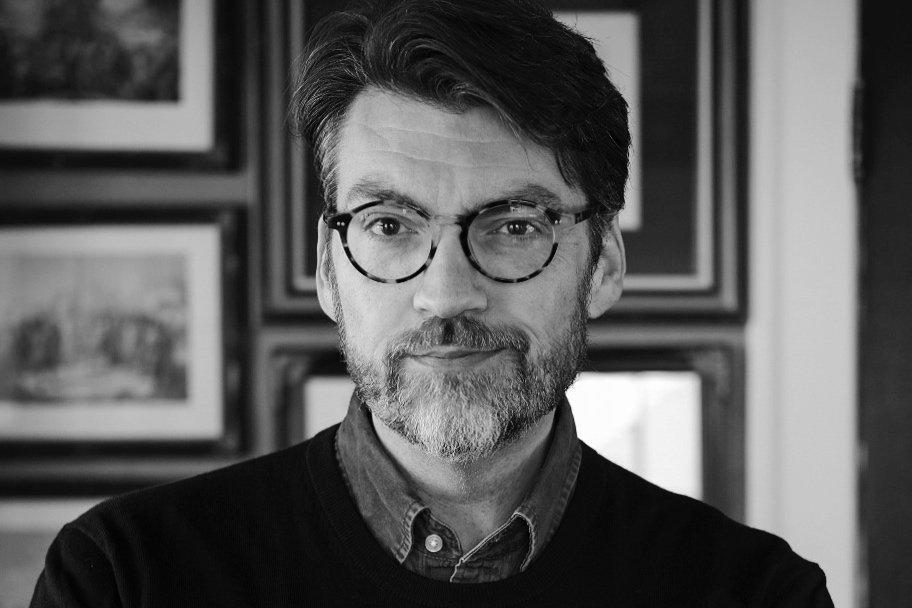J. Mark Bertrand
Board Member
Faculty of Theology
Mark’s Bio
J. Mark Bertrand is a novelist, a pastor, and an advocate for better Bible design. He has served on the faculty of Worldview Academy since 2002, and joined the board of directors in 2020. Mark has a BA in English Literature from Union University, an MFA in Creative Writing from the University of Houston, and an M.Div. from Heidelberg Theological Seminary. Mark is the author of Rethinking Worldview: Learning to Think, Live, and Speak in This World, published by Crossway in 2007. He is also a prolific author of fiction, including three crime novels — Back on Murder, Pattern of Wounds, and Nothing to Hide. Christianity Today declared them “one of those series that is worth getting attached to,” and The Weekly Standard called Mark “a major crime fiction talent” in the vein of Michael Connelly, Ian Rankin, and Henning Mankell. Through his influential Bible Design Blog, Mark has championed a new generation of readable Bibles. His work was featured in the November 2021 issue of FaithLife’s Bible Study Magazine. Since 2017, Mark has been an ordained teaching elder in the Presbyterian Church in America. He and his wife Laurie live in Sioux Falls, South Dakota.
Find out more about Conferences and how to invite Mark to speak at your church or event!
Mark’s Lectures
-
How Not to Talk About Jesus: A Crash Course in Apologetics
This is an introduction for apologetics designed for people who don’t like conflict, and are skeptical of apologetics. Mark shares a better way of thinking about what it means to “talk about Jesus,” then looks at the deeper issues that keep us quiet.
-
Learning to Read
You can read a book—but can you read the culture? In this lecture, Mark explains the need for cultural and theological literacy, then maps out a program for acquiring them. He helps students think through the influences that form our unconscious assumptions.
-
You Are Not God: Six Steps to Remembering What You Are
Starting with the creator/creature distinction and the bondage of the will, Mark works through six key errors that keep us from seeing the human condition for what it truly is. In the process, he reminds students of the centrality of Christ, the plan of redemption, and the importance of bodily resurrection to the New Testament gospel.
-
The New Moralism: A Crash Course in Post-Christian Culture
We live in a post-Christian culture—but what exactly does that mean? In this lecture, Mark explains the concept, revealing both how we got here and what Christians living in a culture like this are called to do.
-
What Made Dagon Bow? The Concept of Givenness
In this talk, Mark uses the capture of the Ark of the Covenant to illustrate one of the most profound doctrines in Scripture, hidden in plain sight: the ‘createdness’ or givenness of all things. You will never look at the temple of Dagon or Christ’s triumphal entry into Jerusalem the same way again!
-
The Implausible Man: A Theological Case for the Historical Adam
Whether or not Adam was a historical figure is more than a historical question for Christians. In this lecture, Mark unpacks the analogy the Apostle Paul makes between the work of Adam and the work of Christ, helping students see why Paul refers to Jesus as “the second Adam.”
-
Grace at Work: The Theology of Work
Isn’t work just a “necessary evil”? Not so fast! In this lecture, Mark explores the doctrine of work both before and after the Fall. How is your work intertwined with your humanity? How does your sin get in the way of doing your work well? Most of our lives are devoted to our jobs, so these are questions we need to get right.
-
Intro to Wisdom
God’s plan for decision-making isn’t divine intervention. It’s cultivating wisdom. But the wisdom literature of Scripture is vast and complex. In this talk, Mark boils it down to basics and gives students a starting point for a lifetime pursuit of wisdom through Jesus Christ.
-
A City Without Walls: 5 Lessons for Siege Warfare
The Bible compares a life without discipline to a city without walls. In this lecture, Mark takes five lessons from the famous siege of Constantinople in 1453 and applies them to the life of Christian discipleship.

